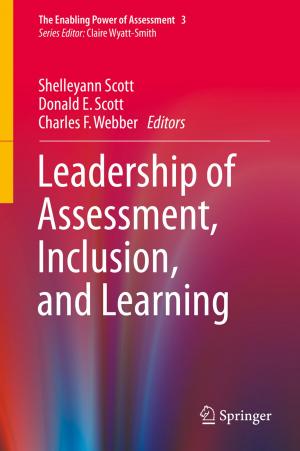Schizoanalytic Ventures at the End of the World
Film, Video, Art, and Pedagogical Challenges
Nonfiction, Reference & Language, Education & Teaching, Educational Theory, Philosophy & Social Aspects, Teaching, Teaching Methods| Author: | jan jagodzinski | ISBN: | 9783030123673 |
| Publisher: | Springer International Publishing | Publication: | March 21, 2019 |
| Imprint: | Palgrave Macmillan | Language: | English |
| Author: | jan jagodzinski |
| ISBN: | 9783030123673 |
| Publisher: | Springer International Publishing |
| Publication: | March 21, 2019 |
| Imprint: | Palgrave Macmillan |
| Language: | English |
This book provides a thorough application of theoretical ideas from Deleuze and Guattari to a series of examples drawn from contemporary film and new media arts. Chapters demonstrate examples of how to do schizoanalysis in philosophically informed cinema studies, new media, and arts based education. Schizoanalysis, as proposed by Deleuze and Guattari in distinction to Lacanian psychoanalysis, provides an imaginary basis to address the precarity of the contemporary world order: from the growing populism with its authoritarian fascist tendencies to the growing concerns regarding climate change within the Anthropocene. Part I of this book initiates this understanding through cinematic examples. Part II calls for a schizoanalytic pedagogical imagination, which is needed to provide insight into the structures of desire as they circulate in media, especially videogames, and the tensions between analogue and digital technological manifestations. Such pedagogy enables an understanding of the ‘new materialism’ where nonhuman and inhuman (AI) agencies are taken into account. To this end schizoanalytic pedagogy calls for a ‘new earth’ of transformed values and relationships.
This book provides a thorough application of theoretical ideas from Deleuze and Guattari to a series of examples drawn from contemporary film and new media arts. Chapters demonstrate examples of how to do schizoanalysis in philosophically informed cinema studies, new media, and arts based education. Schizoanalysis, as proposed by Deleuze and Guattari in distinction to Lacanian psychoanalysis, provides an imaginary basis to address the precarity of the contemporary world order: from the growing populism with its authoritarian fascist tendencies to the growing concerns regarding climate change within the Anthropocene. Part I of this book initiates this understanding through cinematic examples. Part II calls for a schizoanalytic pedagogical imagination, which is needed to provide insight into the structures of desire as they circulate in media, especially videogames, and the tensions between analogue and digital technological manifestations. Such pedagogy enables an understanding of the ‘new materialism’ where nonhuman and inhuman (AI) agencies are taken into account. To this end schizoanalytic pedagogy calls for a ‘new earth’ of transformed values and relationships.















